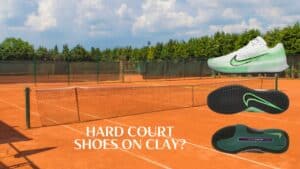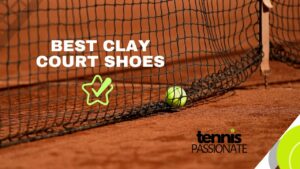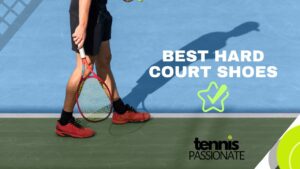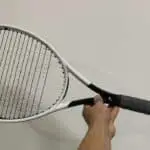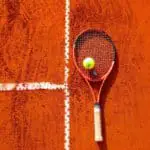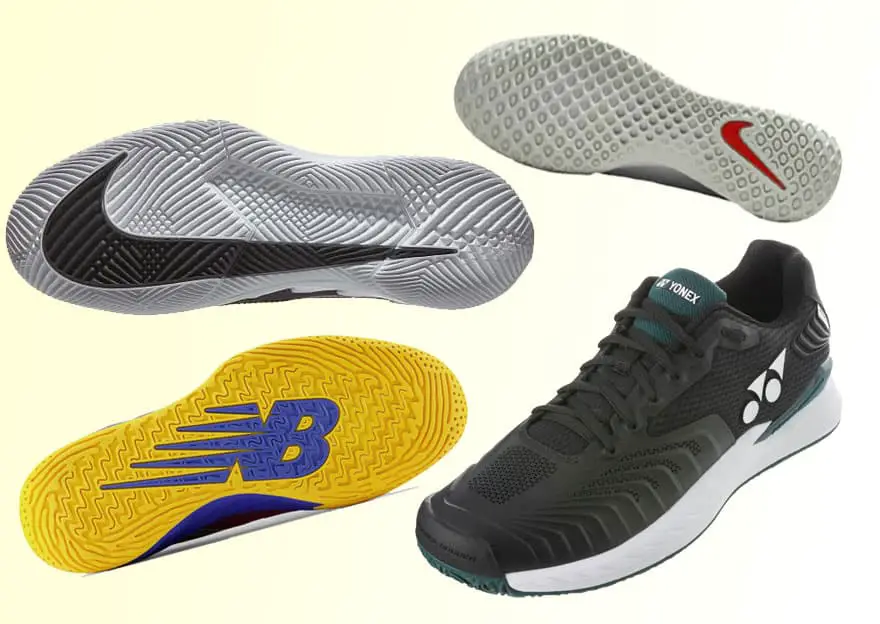
All Court (AC) Vs Clay Court (CC) Tennis Shoes – What to Buy?
Tennis players who want to buy a new pair of tennis shoes are opposed to multiple options including a Clay court and an All Court version.
While it’s obvious to get a clay court version when you mostly play on clay, the question is when to consider buying an all-court version.
The most important thing in a tennis shoe outsole is traction to provide grip and stability. Also, tennis shoes are supposed to help the player slide on the court but not slip. In addition, they need to have lots of cushioning and support to avoid injuries on the heels, ankles, and toes.
In this quick guide, we will discuss the difference between AC and CC tennis shoes, and when to pick one or another.
Difference between AC and CC Tennis Shoes
CC Shoes
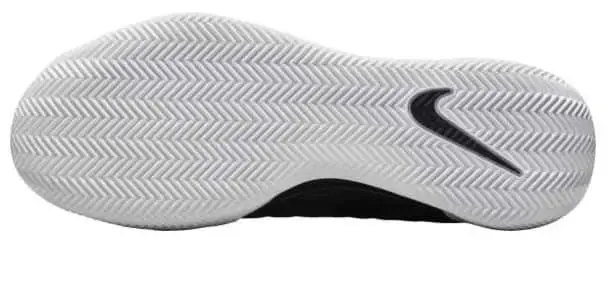
CC or clay-court tennis shoes are designed specifically for clay, which is a softer and more forgiving surface.
These types of shoes generally have:
- Resistant rubber with a herringbone pattern with deep treads for a good grip.
- Soft and flexible upper and outsole for easier sliding and stopping.
- Protective mesh materials prevent clay particles from getting inside the shoes.
- Good padding inside and around the tongue and ankles.
AC Shoes
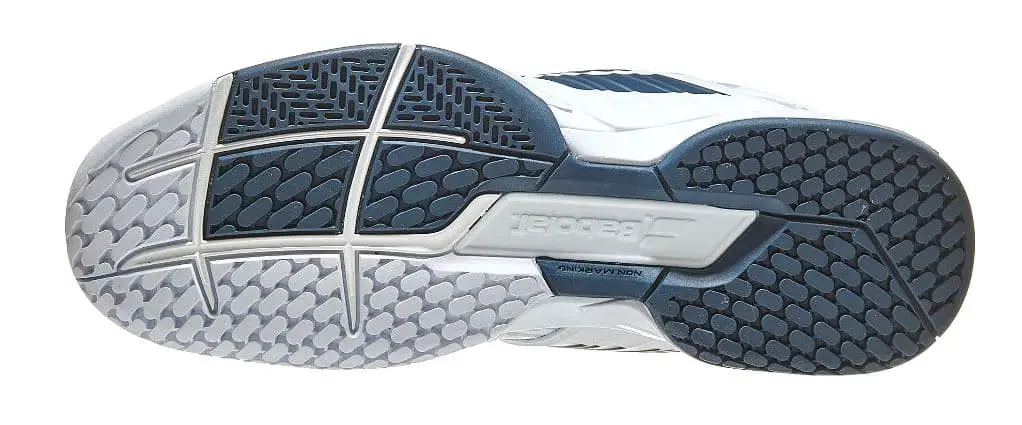
On the other hand, AC or all-court tennis shoes are versatile and can be used on all types of surfaces like hard, clay, cement, and even grass or carpet in some cases.
They generally have:
- Multi-directional or circular patterns with less deep treads
- Solid and anti-abrasion rubber compounds to withstand the high friction on hard courts
- Lightweight and equipped with sturdy TPU materials in the shank and the sides to avoid injuries due to torsion or twists.
- Breathable to allow the air to cool the feet
AC tennis shoes are not very different from hard-court shoes. The difference is that they can be used on clay.
When Should You Get CC Tennis Shoes?
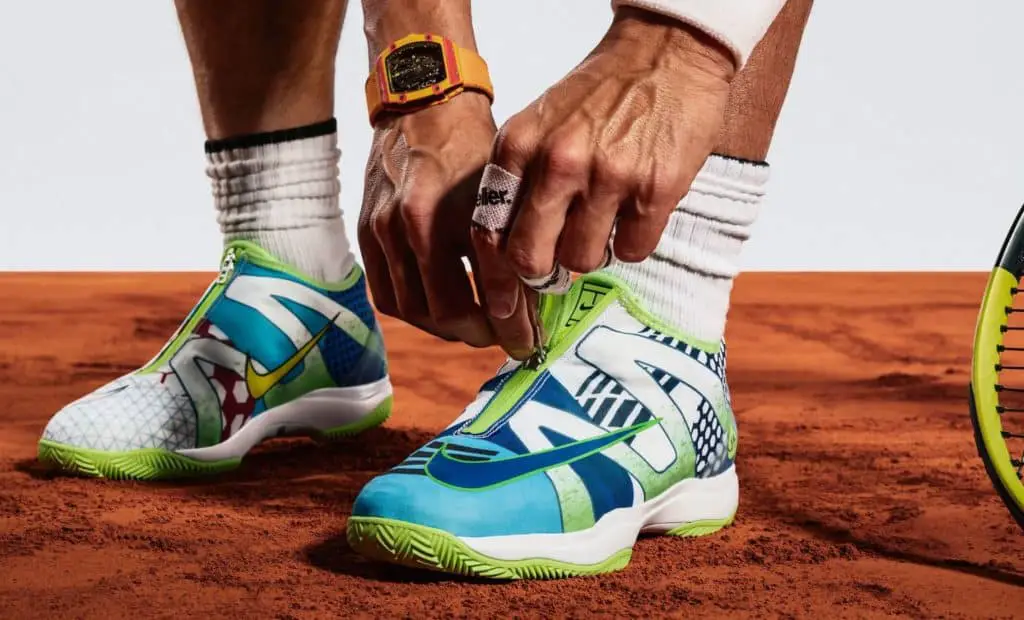
If you play mostly on clay, clay-court shoes will be the best as they have the characteristics that allow them to be highly performant on the dirt.
Traction will be better with a herringbone pattern outsole and the shoes will allow you to control your slides with ease.
Also, clay court shoes are in general heavier and they bring more stability as clay can be slippery and dangerous. In addition, playing on clay involves hitting high balls with lots of spin so you’ll need a solid stance to deliver your shots.
When Should You Get AC Tennis Shoes?
All-court tennis shoes are the best choice for players on a budget, who play on a variety of surfaces like clay, hard, carpet, grass, and more.
They are generally closer to hardcourt shoes, but they provide everything a player needs in terms of support, lateral stability, cushioning, and grip.
You will also benefit from top-notch support and shock absorption because of the pressure that hard surfaces can put on your feet when running and bouncing.
Can I Use CC Tennis Shoes On a Hard Court?
Playing on a hard court using clay-court tennis shoes is possible but not recommended. Hard courts can be harsh on the materials of your CC shoes.
Your outsole rubber and TPU upper will not be durable as much and might wear down quicker than shoes designed specifically for hard courts.
Can I Use AC Tennis Shoes On a Clay Court?
It is possible to use all-court tennis shoes on clay. But remember to pay attention to your sliding.
The tread pattern in the outsole might not provide enough grip as the treads are sometimes not deep enough for a dynamic surface like clay. As a result, your AC tennis shoes can be slippery and unstable in the dirt.
Hence, try to look for good quality versatile shoes that can withstand the high friction of a hard surface and the slipperiness of a clay surface.
We recommend the Asics Solution Speed AC or the Gel Resolution 8 AC as they are perfect for all types of surfaces and they provide high performance and durability.
Understand The Needs Of Each Surface
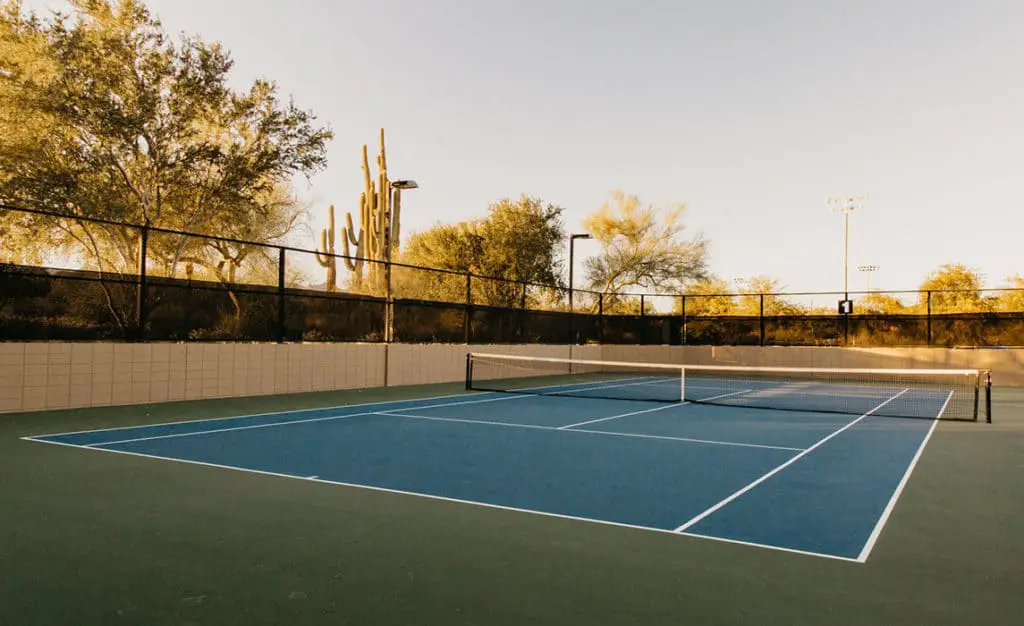
Before you decide what tennis shoes to buy, you should consider which surface you prefer the most or available next to you.
Every surface in tennis demands specific shoes.
- Clay: Shoes with multidirectional tread pattern soles for safe sliding and stability. Check out the best clay-court tennis shoes here.
- Hardcourt: Shoes with a very durable outsole that resists traction and allows sliding with no injuries. Check out the best hardcourt tennis shoes here.
- Grass: Stable shoes with turf outsole and more inside cushioning and protection for better support and stability.
We have an article to help you choose the perfect tennis shoes for your needs.


